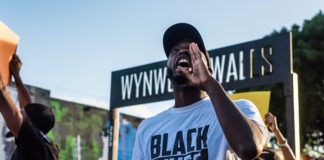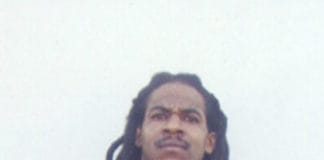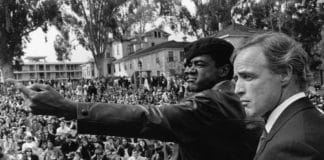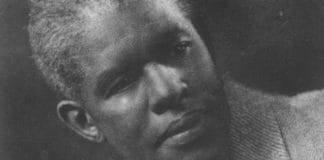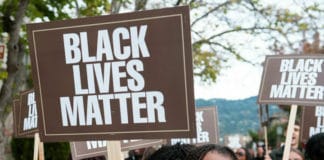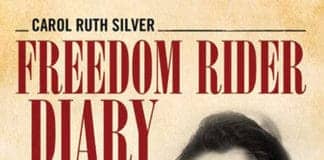Tags Jim Crow laws
Tag: Jim Crow laws
Pattern of practice – brutality, schemes and crimes against humanity since...
Mutope Duguma defines the path from 1619’s forced exportation of Afrikans through the 400-year evolving in the domestic colonized nation to New Afrikans in the protracted struggle of present day.
Louisiana: The last slave state in America
From Anthony Boult we learn the disturbing truth about just how historically diabolical the state of Louisiana is with regard to their caged “slave population,” utilizing a systematic strategy to destroy the dignity of the Black family and suppress the legal, political and socioeconomic rights of African Americans.
Marxists, Smarxists: Black Lives Still Matter
Black Lives Matter no matter how you embrace or argue it – we are in the reckoning and there is no going back. Trying to figure it out from the head will get you wherever it gets you. Go to the heart and you will be there.
We must collectively champion the restorative justice policies of Chesa Boudin
The election of Chesa Boudin serves as a paradigm shift in what we have become accustomed to as criminal justice in Amerika. He is intimately familiar with the deleterious effect and collateral damage that lengthy prison sentences can have on the moral fabric of a family.
Jim ‘Cannabis’ Crow: an interview wit’ a prisoner from the War...
Now that people are allowed to profit from the herb, will the people who were involved in the illegal commerce be released? Who is benefitting from the new U.S. Green Rush?
Blacks awarded only 1 percent of Caltrans contracts
At our council retreat in San Diego Jan. 18, during the presentation on how to correct the low 1 percent participation of African Americans in Caltrans contracting in the midst of a 17.9 percent DBE accomplishment, a council member made a comment that has made me feel compelled to clarify why this council is in existence. I know that most of us, particularly newer council members, may believe that we are here because we are qualified contractors, but in this country, with its inherent institutional discrimination where qualifications of certain ethnic groups don’t matter, we are here to pursue equality and equal opportunity, known as civil rights, for all classified minorities and women.
How the 1968 uprisings gave us the Civil Rights Act of...
Dr. King’s assassination was the key marker in the transition of a great era of social change, from one where “inclusion” in the broader capitalist system was the general thrust to one where the general focus of the Black fight for equality became a broadly defined “self-determination,” rooted in a recognition of the entrenched nature of racism, not simply as a function of attitudes, but as a method of social control.
In Florida prisons, will so-called street thugs find the courage to...
Though the so-called street thugz forgot about the struggle, it’s IWOC that didn’t forget! Corporate thugz will continue to keep their boots on the necks of the so-called street thugz as long as we don’t unite. So what we gonna do, so-called street thugs? Fight for our rights with the help of Gainesville IWOC or let the slavemaster’s children (prison guards) continue to shine a flashlight up our buttz? You like that? I don’t.
Ward vs. Kovalev: Was this the great white hope re-mix?
This fight, Andre Ward vs. Sergey Kovalev, felt like the Jack Johnson vs. James J. Jeffries fight of July 4, 1910, between world heavyweight boxer Jack Johnson and undefeated, coming out of retirement heavyweight contender, James J. Jeffries. Both fights were billed as the “Fight of the Century.” Both occurred during a time of hostility and escalating racial tensions between Afrikan people and people of European descent – and in a U.S. known for its Jim Crow laws and the rise of the KKK.
George Jackson University supports the historic Sept. 9 strike against prison...
Sept. 9, 2016, is the day that many people in America are wholeheartedly organizing, mobilizing, taking action, standing and locking arms in solidarity against what we know as prison slave labor – yes, legalized slavery – and people are saying, “No more!” Even though there are many taking action and answering the call to cure this particular ill of society, there is an overwhelmingly larger portion of the U.S. population who are absolutely clueless to the fact that slavery still exists.
The key or the peephole: A look inside the prison industrial...
The Ashker decision was great, the five core demands are all good, but how come we are not writing our own regulations and attacking the “STG” scheme in totality? We know from its inception it was designed to isolate and entrap prisoners with the God given talent to awaken the prisoner class to the exploits of the system and provide those willing to organize for change with practical alternatives to prison enslavement.
Amend 13!
This is a public notice to all freedom fighters, activists and community leaders: SLAVERY IS NOT DEAD! Did the 13th Amendment abolish slavery? Ask anyone in the United States this question and they will answer most emphatically: Yes, of course it did. If you, the person reading this article and call to action, believe this as well, please allow me to inform you: You are wrong! Slavery is not dead! Rather than abolish slavery, the 13th Amendment LEGALIZED it!
Brando narrates new must-see documentary, ‘Listen to Me Marlon’
“Listen to Me Marlon” is a documentary film by Stevan Riley that takes a candid look at the life, activism and work of the legendary, charismatic and mercurial film icon Marlon Brando, whose career spanned five decades. The late Brando narrates the film exclusively with sound taken from hundreds of hours of audio that he himself recorded privately over the course of 40 years.
Racism and African American men: Killing without a gun
Dr. Vickie M. Mays, a clinical psychologist and professor of health policy and management at UCLA, has published a number of studies showing how experiencing racism contributes to high morbidity and mortality in African Americans. Mays said she is concerned that not enough attention is paid to the lethal consequences of discrimination African American men face every day.
The mind that sees: The third eye of Eslanda Goode Robeson
Her name was Eslanda Cardozo Goode Robeson, and she was brilliant! But what is perturbing is that evidence of her enormous body of work as a photographer has vanished, as though she did not exist! But exist she very much did indeed! Eslanda Robeson lived and made an impact in the world. She was a writer, storyteller, intellectual, adventurer, scientist, anthropologist, political analyst, artist, anti-colonialist activist and a woman of principle.
P.H. Polk, one of ‘10 essential African-American photographers’
Prentice Hall Polk (1898-1985) is one of the world’s quintessential photographers because he captured the honesty, pride and nobility of Afrikan people, during a time in history when portraitures of Afrikan people were typically nothing but caricatures indicative of the Jim Crow laws and of white supremacy. Mr. Polk enjoyed his work creating, preserving and documenting an important part of Afrikan history.
Pattern of practice: Centuries of racist oppression culminating in mass incarceration
After winning their freedom in the bloodiest conflict in U.S. history, Blacks were in many cases and places denied basic human, civil and political rights, literally forcing New Afrikans back into slavery by denying them a right to life. Over the years the government declared and waged war on the New Afrikan communities - war on unemployed "vagrants,' war on crime, war on drugs, war on gangs - culminating in mass incarceration.
I am the US economy – from prison to the streets
This is for the moms and pops in East Oakland or any other urban neighborhood in honor of the African union of Marcus Books, from a prisoner political action committee to being a member of the formerly incarcerated people’s policy academy or the freedom plan of United KAGE Brothers (UKB), from the urban freedom schools focused on real life Block Reportin’ of “Unfinished Business.” This is for my brothers of the NCTT Cor SHU and all supporters of our hunger strike coalition.
Carol Ruth Silver’s ‘Freedom Rider Diary: Smuggled Notes from Parchman Prison’
Arrested as a Freedom Rider in June of 1961, Carol Ruth Silver, then 22, spent the next 40 days in Mississippi jail cells. She chronicled the events and her experiences on hidden scraps of paper which amazingly she was able to smuggle out. These raw written scraps she fashioned into a manuscript, which has waited, unread, for more than 50 years. “Freedom Rider Diary” is that account.
‘Ujamaa Village,’ an old idea revisited: Black towns!
The resurgence of modern Black towns for today’s Black population could represent a renaissance in Black thinking. It makes sense that if other cultural groups have “towns” like Chinatown, Japantown, Little Italy or Little Mexico, the Black community should get serious about developing and building Africatowns to recapture our internal economic markets and revitalize our cultural heritage for posterity.

 Store
Store



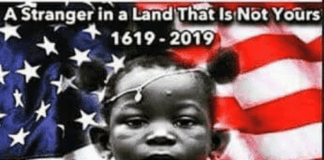

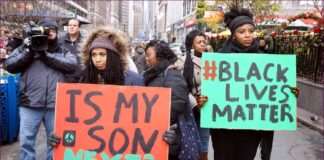

![Jim ‘Cannabis’ Crow: an interview wit’ a prisoner from the War on [Drugs] the Black Community](https://sfbayview.com/wp-content/uploads/2019/12/sddefault-324x160.jpg)


